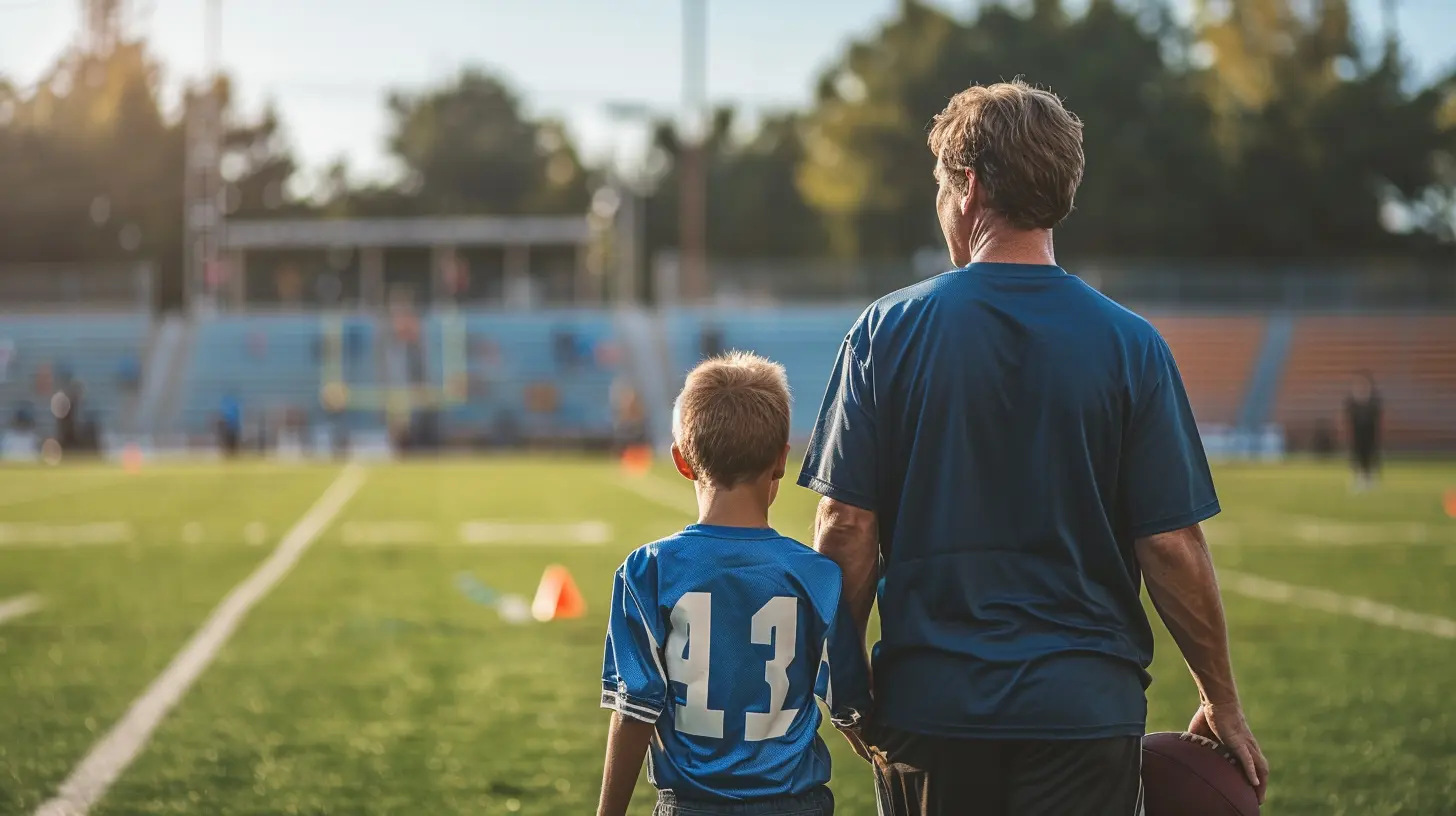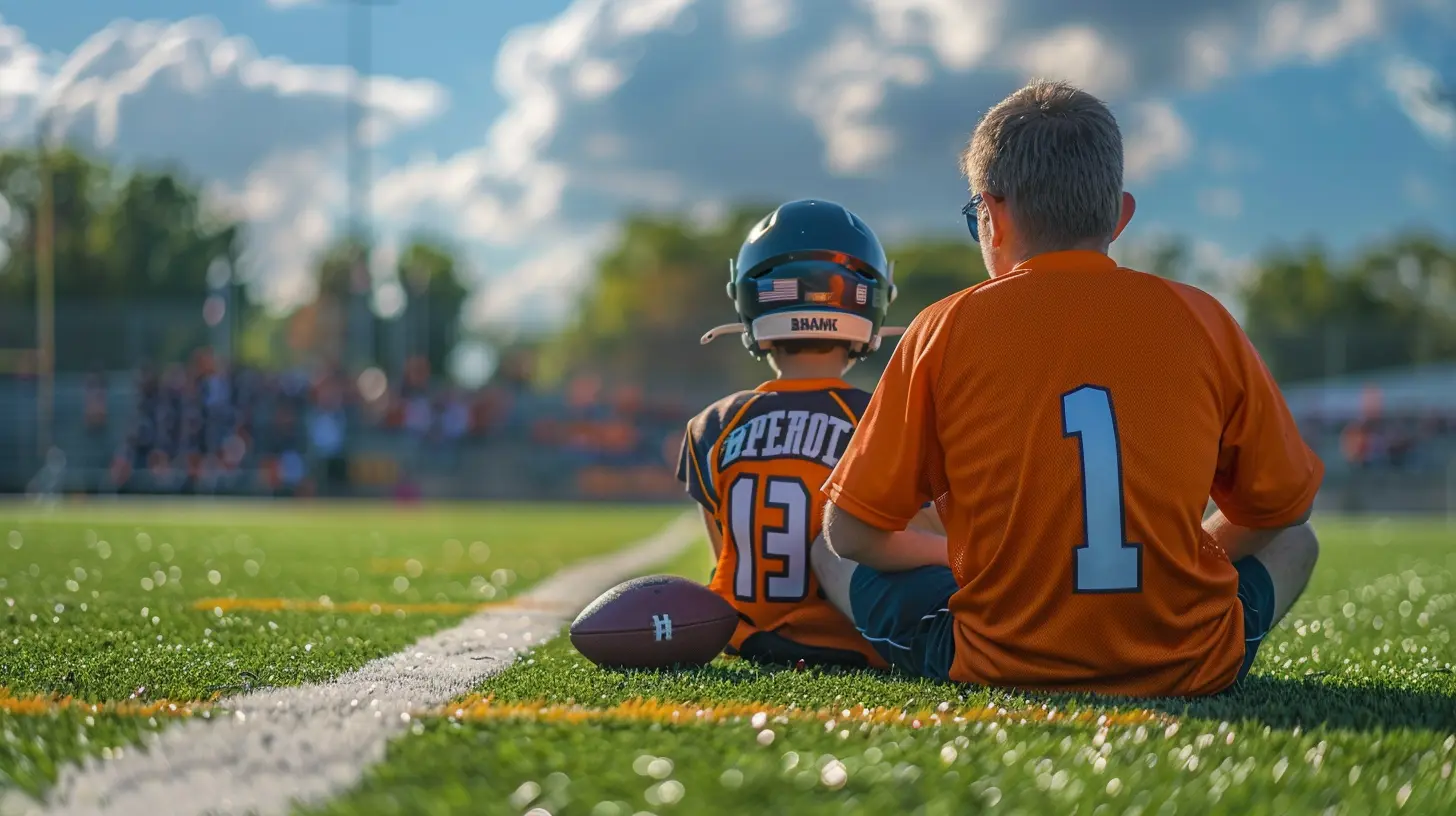How to Build Stronger Parent-Coach Relationships in Youth Sports
11 August 2025
Youth sports—where dreams are born, and skills are sharpened. But behind every young athlete, there’s a dynamic duo working behind the scenes: parents and coaches. When these two forces align, magic happens. The child thrives, the game flourishes, and everyone wins.
But let’s be honest. This relationship isn’t always smooth sailing. Misunderstandings creep in, expectations clash, and suddenly, what started as a season of excitement turns into a battlefield of frustration. So, how do we bridge the gap? How do we create a partnership where parents and coaches work together, not against each other?
Strap in, because we're diving deep into the blueprint for building stronger parent-coach relationships in youth sports.

The Power of Communication
Open Dialogue: The Glue That Holds It All Together
Imagine a ship without a captain giving clear directions—it’s bound to drift off course. That’s exactly what happens when there’s a lack of communication between parents and coaches.The best relationships thrive on open dialogue. Coaches should set expectations early on—team rules, playing time, training schedules, and philosophy. Likewise, parents should feel comfortable reaching out if they have concerns.
But here’s the kicker: Communication has to be respectful and constructive. No one benefits from passive-aggressive emails or heated sideline confrontations. Instead, think team-first and keep the conversations positive and purposeful.
Listening: The Underrated Superpower
Talking is easy. Listening? That’s the hard part.Coaches should lend an ear to parents’ concerns, understanding where they come from. Meanwhile, parents should recognize that coaches are balancing multiple athletes, personalities, and challenges. When both sides listen with empathy, trust naturally follows.

Setting Realistic Expectations
Understanding Roles: Parents Cheer, Coaches Coach
Ever been to a game where a parent is shouting instructions louder than the coach? It’s like having too many cooks in the kitchen—it only leads to chaos.A parent’s job is to support and encourage, not to dictate strategies or question every decision. Coaches, on the other hand, are there to develop skills, set game plans, and make tough choices.
When each side respects their roles, conflicts decrease, and young athletes get the best of both worlds: guidance and encouragement.
The Playing Time Dilemma
Ah, the elephant in the room—playing time.Every parent wants to see their child on the field. Every coach wants to field the best team. The key? Honest conversations and a clear team policy from day one.
Coaches should explain their approach—whether it’s equal playing time or performance-based. Parents, in turn, should acknowledge that sports teach life lessons, including perseverance and patience.
At the end of the day, it’s not just about minutes on the field but about growth, teamwork, and character-building.

Respect: The Backbone of Strong Relationships
Appreciating The Coach’s Effort
Let’s give credit where it’s due—coaching youth sports is a labor of love. They sacrifice evenings, weekends, and personal time to mold young athletes.A simple “Thank you, Coach” can go a long way. Recognize their hard work, respect their decisions, and trust their expertise.
Parents Deserve Respect Too
Coaches, take a moment to acknowledge parents as well. They’re the ones shuttling kids to practice, paying for gear, and emotionally investing in their child’s journey.A little empathy and appreciation can strengthen bonds and turn potential conflicts into mutual understanding.

Handling Conflicts Like Pros
Address Issues Privately
Disagreement is natural—it’s how it’s handled that makes the difference. The golden rule? Never argue on the sidelines or in front of players.If concerns arise, schedule a meeting away from the heat of the moment. Whether it’s about playing time, coaching style, or team dynamics, private discussions lead to better resolutions.
Keep The Bigger Picture in Mind
At the heart of it all is the young athlete. Their growth, happiness, and love for the game should always take priority.When conflicts arise, pause and ask: “Is this benefiting my child, or is it about my personal feelings?”
More often than not, a shift in perspective makes all the difference.
Creating a Unified Team Culture
Parents & Coaches as Partners
Imagine youth sports as a movie production. The kids are the stars, but parents and coaches? They’re the directors and producers making it all happen.When both sides work together, the season isn’t just about wins and losses—it becomes a platform for growth, friendship, and lifelong memories.
A great way to foster this unity? Team meetings, social events, and parent-coach gatherings. Creating a community vibe strengthens relationships in ways that X’s and O’s never could.
The Ultimate Goal: Raising Strong, Confident Athletes
Beyond the wins and highlight reels, what matters most? Developing kids into resilient, confident, and disciplined individuals.Sports should be a foundation for life—teaching teamwork, handling adversity, and embracing challenges. When parents and coaches unite with this mindset, the journey becomes far more meaningful.
Conclusion: A Team Effort
Stronger parent-coach relationships don’t happen by accident; they’re built with intention, respect, and teamwork.Communicate openly. Set realistic expectations. Respect each other’s roles. And above all, keep the focus on what truly matters—the young athletes growing and thriving in the game they love.
At the end of the day, sports are about more than just the scoreboard. They’re about the lessons, the character, and the lifelong bonds formed along the way.
So, let’s work together. Let’s lift each other up. And most importantly, let’s create an environment where kids can chase their dreams—one game at a time.
all images in this post were generated using AI tools
Category:
Youth SportsAuthor:

Uziel Franco
Discussion
rate this article
1 comments
Xavier McKibben
Building trust and open communication makes youth sports a rewarding experience for everyone involved!
August 28, 2025 at 2:42 AM

Uziel Franco
Absolutely! Trust and open communication are key to fostering positive relationships and enhancing the overall experience in youth sports.


